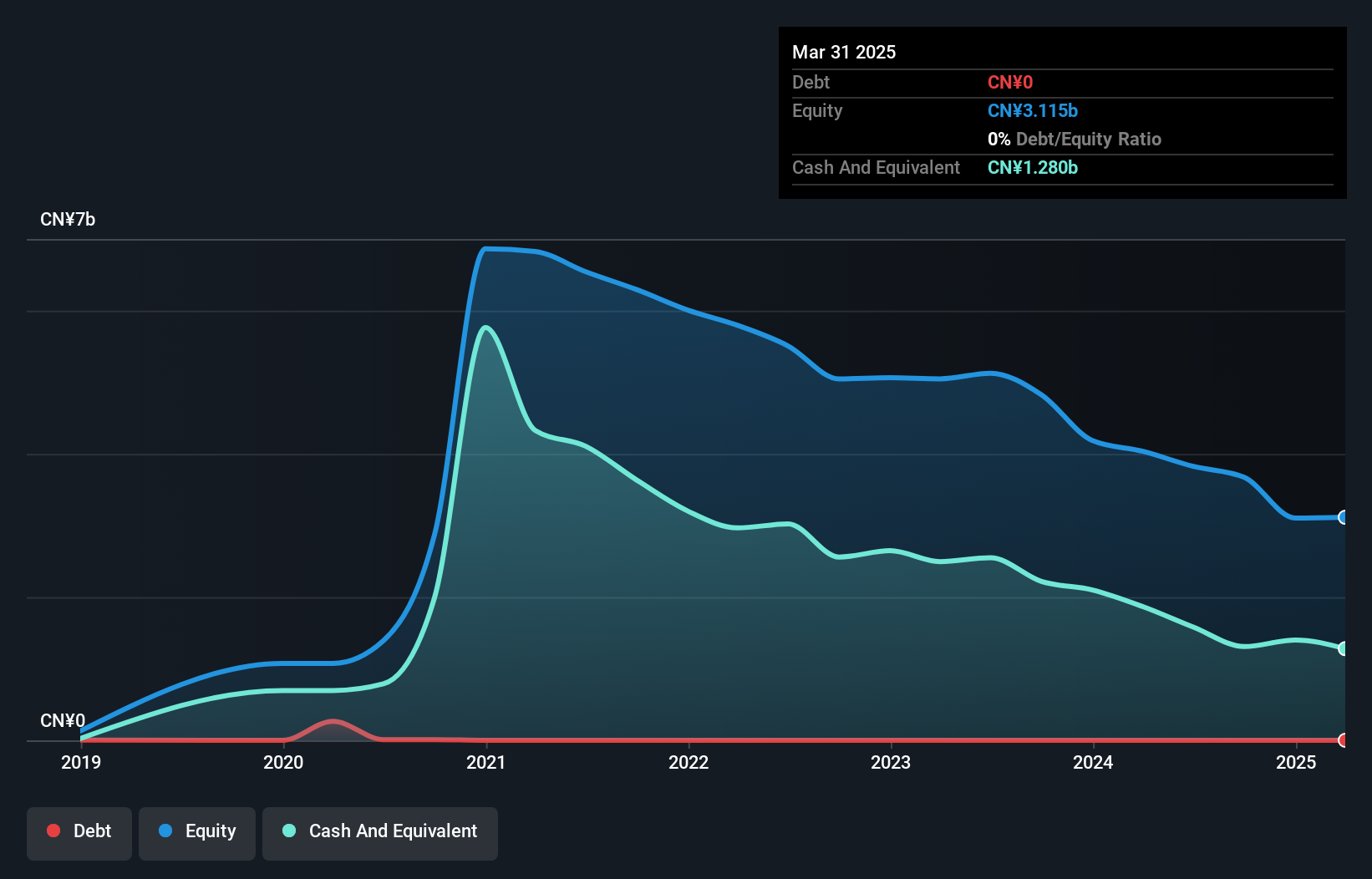
Even when a business is losing money, it's possible for shareholders to make money if they buy a good business at the right price. For example, Yatsen Holding (NYSE:YSG) shareholders have done very well over the last year, with the share price soaring by 144%. But the harsh reality is that very many loss making companies burn through all their cash and go bankrupt.
Given its strong share price performance, we think it's worthwhile for Yatsen Holding shareholders to consider whether its cash burn is concerning. In this article, we define cash burn as its annual (negative) free cash flow, which is the amount of money a company spends each year to fund its growth. Let's start with an examination of the business' cash, relative to its cash burn.
Does Yatsen Holding Have A Long Cash Runway?
A cash runway is defined as the length of time it would take a company to run out of money if it kept spending at its current rate of cash burn. When Yatsen Holding last reported its March 2025 balance sheet in May 2025, it had zero debt and cash worth CN¥1.3b. In the last year, its cash burn was CN¥301m. Therefore, from March 2025 it had 4.3 years of cash runway. There's no doubt that this is a reassuringly long runway. The image below shows how its cash balance has been changing over the last few years.

See our latest analysis for Yatsen Holding
How Well Is Yatsen Holding Growing?
Yatsen Holding boosted investment sharply in the last year, with cash burn ramping by 59%. On top of that, the fact that operating revenue was basically flat over the same period compounds the concern. Considering both these metrics, we're a little concerned about how the company is developing. While the past is always worth studying, it is the future that matters most of all. For that reason, it makes a lot of sense to take a look at our analyst forecasts for the company.
How Hard Would It Be For Yatsen Holding To Raise More Cash For Growth?
Even though it seems like Yatsen Holding is developing its business nicely, we still like to consider how easily it could raise more money to accelerate growth. Generally speaking, a listed business can raise new cash through issuing shares or taking on debt. Many companies end up issuing new shares to fund future growth. We can compare a company's cash burn to its market capitalisation to get a sense for how many new shares a company would have to issue to fund one year's operations.
Since it has a market capitalisation of CN¥5.8b, Yatsen Holding's CN¥301m in cash burn equates to about 5.2% of its market value. Given that is a rather small percentage, it would probably be really easy for the company to fund another year's growth by issuing some new shares to investors, or even by taking out a loan.
Is Yatsen Holding's Cash Burn A Worry?
It may already be apparent to you that we're relatively comfortable with the way Yatsen Holding is burning through its cash. For example, we think its cash runway suggests that the company is on a good path. Although its increasing cash burn does give us reason for pause, the other metrics we discussed in this article form a positive picture overall. Considering all the factors discussed in this article, we're not overly concerned about the company's cash burn, although we do think shareholders should keep an eye on how it develops. Its important for readers to be cognizant of the risks that can affect the company's operations, and we've picked out 1 warning sign for Yatsen Holding that investors should know when investing in the stock.
Of course Yatsen Holding may not be the best stock to buy. So you may wish to see this free collection of companies boasting high return on equity, or this list of stocks with high insider ownership.
Have feedback on this article? Concerned about the content? Get in touch with us directly. Alternatively, email editorial-team (at) simplywallst.com.
This article by Simply Wall St is general in nature. We provide commentary based on historical data and analyst forecasts only using an unbiased methodology and our articles are not intended to be financial advice. It does not constitute a recommendation to buy or sell any stock, and does not take account of your objectives, or your financial situation. We aim to bring you long-term focused analysis driven by fundamental data. Note that our analysis may not factor in the latest price-sensitive company announcements or qualitative material. Simply Wall St has no position in any stocks mentioned.